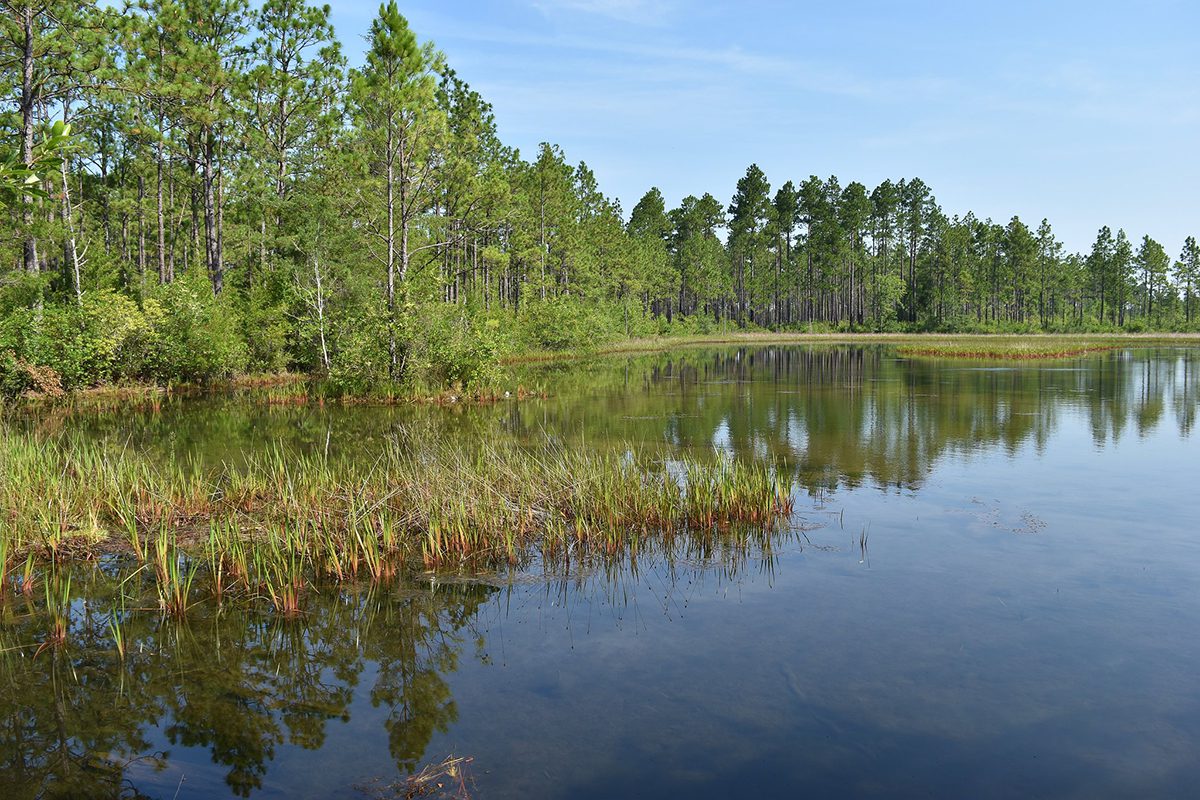
Now that the North Carolina Farm Act of 2023 has become law, its opponents say about 2.5 million acres of the state’s wetlands are vulnerable to development.
The Senate voted 29-17 Monday evening and the House voted 78-40 Tuesday afternoon to override Gov. Roy Cooper’s veto of Senate Bill 582, “An Act to Make Various Changes to The Agricultural and Wastewater Laws of This State,” commonly called North Carolina Farm Act of 2023.
Supporter Spotlight
Both votes essentially were down party lines, but six House Democrats voted in favor of the override.
Cooper vetoed the bill Friday citing a provision in the bill “that severely weakens protections for wetlands means more severe flooding for homes, roads and businesses, and dirtier water for our people, particularly in North Carolina.”
Sen. Norm Sanderson, R-Pamlico, Sen. Brent Jackson, R-Sampson, and Sen. Buck Newton, R-Wayne, introduced the bill with the provision to “Clarify Definition of Wetlands,” which restricts wetlands that the state can regulate to those considered “waters of the United States,” often called WOTUS, and specifies that wetlands do not include prior converted cropland, consistent with the existing rule.
The Environmental Protection Agency, because of the Supreme Court’s recent decision in the case of Sackett v. EPA, is defining “waters of the United States” to be consistent with the Supreme Court’s decision that the Clean Water Act only extends to “wetlands with a continuous surface connection to bodies that are ‘waters of the United States’ in their own right.”
The ruling and now the veto override make isolated wetlands outside of both state and federal jurisdictions.
Supporter Spotlight
Rep. Pricey Harrison, D-Guilford, during floor debate Tuesday, urged her fellow representatives to let the veto stand because of the wetlands provision that Cooper had cited.
Harrison noted that agriculture was exempt from wetlands regulation under the measure, so the provision doesn’t affect the agriculture industry. “This is about the ability to fill in and develop wetlands that play a very important role and are protecting our water quality and preventing flooding.”
The exemption states that wetlands do not include prior converted cropland as defined in the National Food Security Act Manual.
Harrison said that the U.S. Supreme Court decision left it up to the states to protect wetlands. After the Sackett decision, Tennessee and South Carolina looked at their wetland protections to make sure that they’re filling the void created by the Supreme Court decision.
“I want to remind you what the implications are going to be for our state,” Harrison continued, adding that the state is facing increasing numbers of high-energy storms, and the flooding in eastern North Carolina has been tremendous.
“Wetlands provide a very important role for flood resiliency. They can slow down water, something like a million gallons per acre. They also filter for water quality for those of you who care about clean drinking water, and they also provide wildlife habitat for those of you who like to fish and hunt,” Harrison said. “So wetlands play a very important role and our state and the function of our state.”
If the veto is overridden, “we’re going lose 2.5 million acres of wetlands to vulnerability for development because they will no longer have the protection that they had before and that’s 7% of the landmass of the state. A significant portion of that — 800,000 (acres) — are actually in the Cape Fear and Neuse River basins alone. We are looking at significant impact.”
Rep. Deb Butler, D-New Hanover, said that these wetlands are magic and they do the work themselves if they’re left alone. “This approach that we use feel so schizophrenic. On the one hand we do great work and on the other hand, we shoot our own foot off,” she said before the override vote.
Monday evening, after the Senate voted to override the veto, Jackson, the chairman of the Senate Agriculture, Energy, and Environment Committee and primary sponsor of the bill, said in a statement, “North Carolina’s farmers work day-in and day-out to make sure we all have enough food to feed our families, and it’s a shame that after originally supporting the North Carolina Farm Act of 2023, several Democrats turned their backs on farmers. This year’s Farm Act is good legislation that will help our farmers, growers, producers, and distributors. I appreciate my Republican colleagues for standing strong to override the governor’s ill-advised veto and supporting North Carolina agriculture.”







